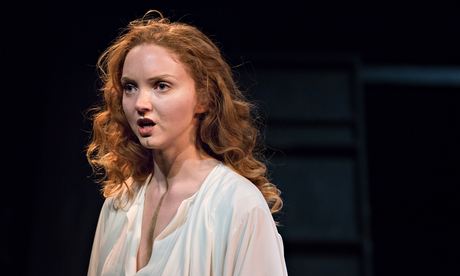
You have to admire the skill and audacity of Simon Armitage in compressing Homer's Iliad into a three-hour play. But while I'd recommend seeing the production either in Manchester or on its move to Shakespeare's Globe, it feels more like a finely written dramatised narrative than a fiercely subjective play. Armitage starts, ingeniously, with the idea of Zeus as a pedlar in modern Hisarlik, the supposed site of ancient Troy, reliving his memories of the siege. This has the dual advantage of allowing Zeus to recall his days as a cosmic force and for him to look back in anger on a wastefully absurd war. But, having created a valuable framework, Armitage doesn't make enough use of it. If only for the sake of structural balance, you expect the play to end where it began: with a beggar's-eye view of the Trojan war. And one speech the modern Zeus is given, expressing his retrospective revulsion at the horrors of war, suggests that his potential as a bilious commentator is never fully realised.
The real strength of Armitage's play lies in its ability to encapsulate key Homeric events, from the opening quarrel between Agamemnon and Achilles – and in the vitality of its language. Like all good poets, Armitage uses prose with absolute precision and his dialogue is sinewy, alert and speakable. Andromache's tart observation to Helen that "when you walk in a room the men smell sex, the women smell death" is turned on its head by its recipient in a way that indicates her self-awareness. The language is also sufficiently up-to-date to invoke modern parallels, as in Hector's accusation that Paris has created a "shit-storm" through his abduction of Helen, without being distractingly anachronistic.
It all makes for a very good evening: I just wish that Armitage, like so many distinguished predecessors from Shakespeare to Giraudoux, had used the Trojan war to express a strong personal vision. Nick Bagnall's production faithfully matches the text's focus on storytelling and, thanks to Ashley Martin-Davis's design, comes up with some striking visual effects: the Trojan warriors emerge from a smoke-filled tunnel as if from the mists of time and the arrival of the wooden horse, which lies beyond the scope of the Iliad, is done with an adroitness I won't reveal. And even if Lily Cole is a somewhat inexpressive Helen, Richard Bremmer as Zeus, Colin Tierney as Odysseus, Jake Fairbrother as Achilles and Clare Calbraith as Andromache and Thetis give strongly-defined performances in a piece of narrative drama you might describe as Homer without tears.
• Until 7 June. Box office: 0161 833 9833. Venue: Royal Exchange, Manchester
Simon Armitage on rewriting Homer: Lily Cole's Helen 'is an Iraqi supergun'

